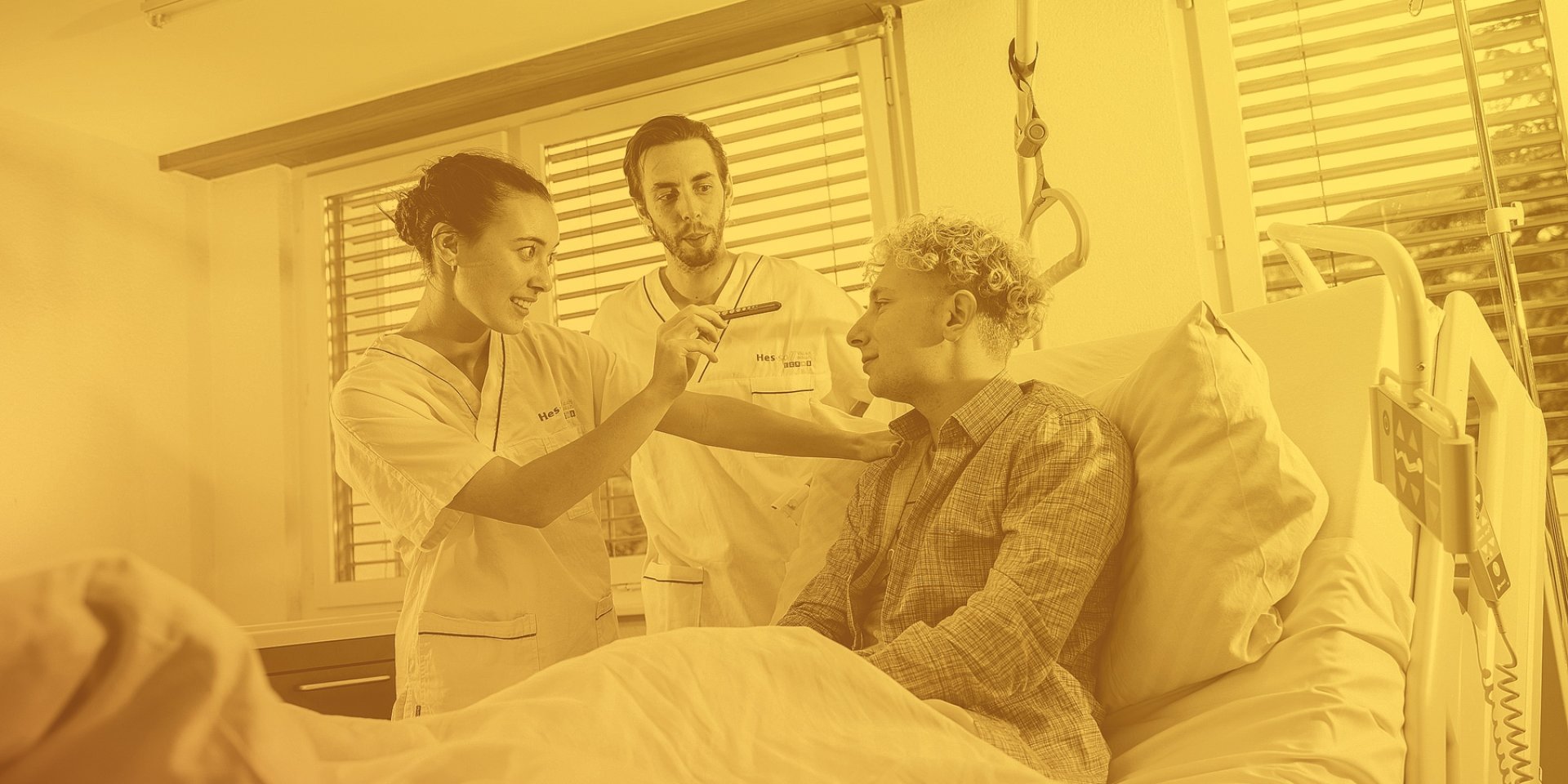Staff

| Role | Assistant professor UAS |
|---|---|
| Education | 2011: PhD in Cognitive Neuroscience, DIST University of Genoa, and Italian Institute of Technology (IIT), Genoa, Italy (Department of Robotics, Brain and Cognitive Sciences, Human Behaviour Lab) - 2007: Master in Psychology, University of Bologna, Italy (Neuropsychology/Cognitive neuroscience) - 2005: Bachelor in Psychology, University of Bologna, Italy |
| Phone | |
| michela.bassolino@hevs.ch |
Since the beginning of her studies, Michela has been fascinated by the plasticity of body and space representations in normal and pathological conditions.
She studied Neuropsychology and Cognitive Neuroscience at the Faculty of Psychology, University of Bologna (Italy, Prof. Elisabetta Làdavas).
Then, after her clinical training as neuropsychologist in rehabilitation centres for brain-damaged patients, she did her PhD in Cognitive Neuroscience at the Istituto Italiano di Tecnologia (IIT, Genova) by studying sensorimotor plasticity after upper-limb immobilization in a multidisciplinary department (Robotics, Brain and Cognitive Science department, supervisor: Prof. Thierry Pozzo). Collaborating with neurophysiologists as Prof. Luciano Fadiga and Prof. Marco Bove, she improved her background by taking experiences with Transcranial Magnetic Stimulation (TMS). After her PhD, she spent a further 1.5 year at the IIT as post-doctoral fellow to study the effects of sensorimotor deprivation on multisensory body representations (collaborations with Prof. Andrea Serino and grant funded by La Fondation Motrice, PI).
In 2013, she moved to Switzerland to work at the Center for Neuroprosthetics (CNP) of the EPFL, by contributing to the establishment of the new EPFL-antenna in Sion in collaboration with the Clinique Romande de réadaptation (SUVA-CRR). From 2016 to 2019, she led a project funded by the SNSF Ambizione grant and hosted by the Blanke lab (EPFL), aiming at studying the sensory-motor bases of embodiment and body representations by combing Transcranial Magnetic Stimulation, virtual-reality and behavioural assessments in healthy young and older adults and in stroke patients.
Since September 2019, she has joined the HES-SO Valais-Wallis, Institute of Health. She has recently started a research projected funded by “La Fondation Mercier pour la Science” on body representations in older adults. She is also actively collaborating with the MySpace lab at CHUV (Prof. Andrea Serino).
